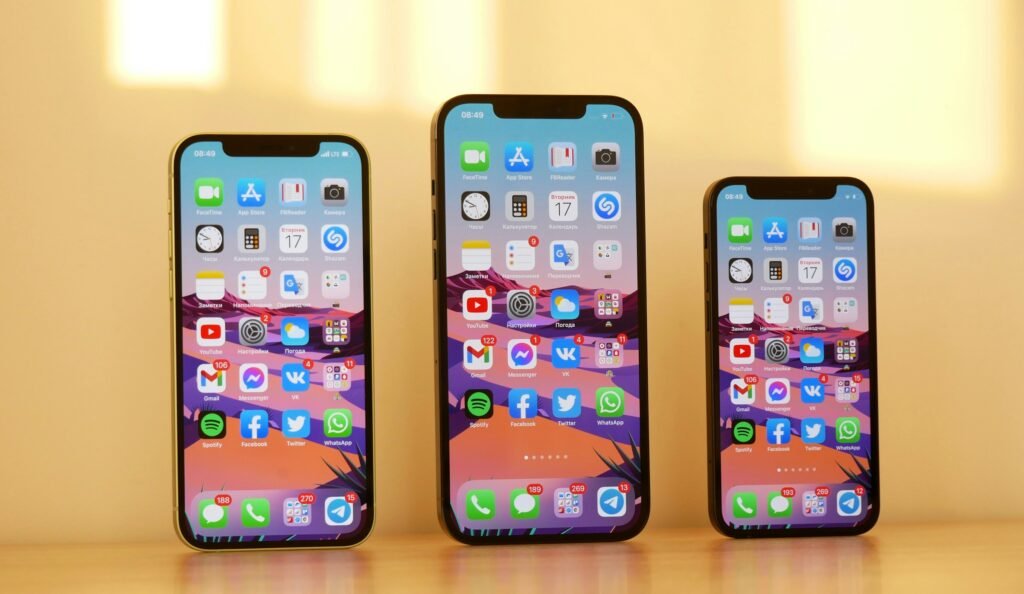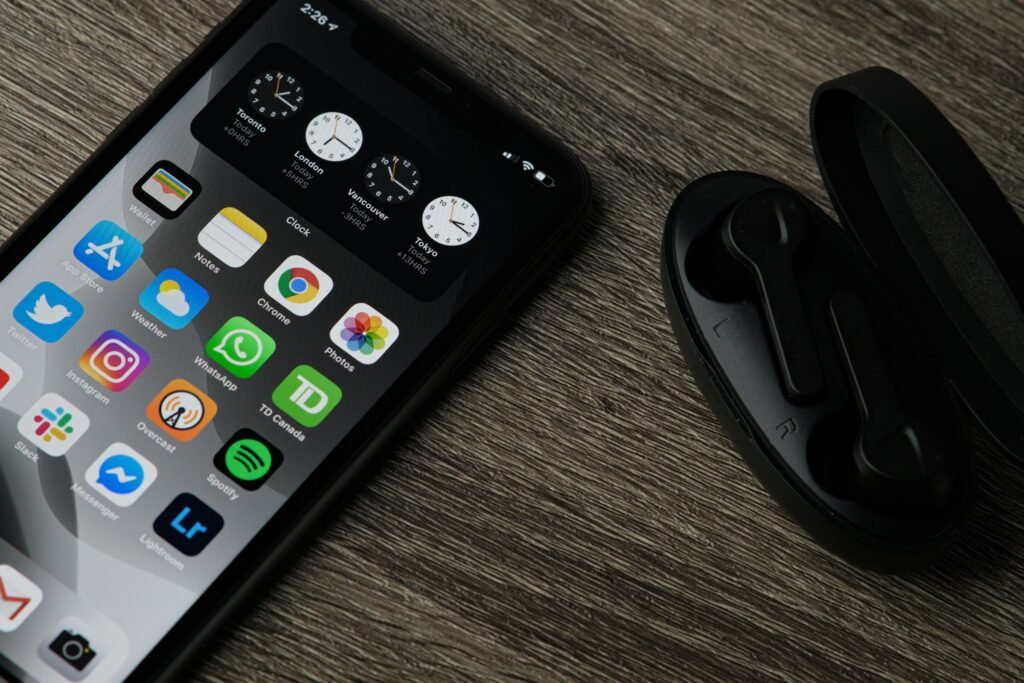In today’s digital world, mobile apps have become a vital part of our daily lives. From ordering food and booking a ride to chatting with friends and tracking our health, apps are everywhere. For businesses, having a mobile app is more than just a trend—it’s a smart move to stay connected with customers, streamline services, and boost growth.
But here comes the big question: what kind of mobile app should you build?
You might have heard terms like “native app,” “web app,” and “hybrid app,” but what do they really mean? And more importantly, which one is right for your business? Choosing the right type of mobile app can save you time, money, and lots of headaches down the line. In this article, we’ll break down the three major types of mobile apps, compare their strengths and weaknesses, and guide you through how to choose the best fit for your needs.
Whether you’re a startup, a growing SME, or an established business, this guide is designed to help you understand your options clearly and make informed decisions.
Why Mobile App Type Matters for Your Business
Before diving into the different types, it’s important to understand why the type of app you choose matters. Building an app is an investment. You’ll be putting time, money, and resources into it, so you want to make sure you get the best value.
Different types of apps perform differently depending on what you need them to do. Some are faster, some are cheaper to build, and some give users a smoother experience. Picking the wrong type can lead to higher costs, delays, and poor user satisfaction.
Also, think about your business goals. Are you launching a service that relies heavily on mobile performance? Are you looking for speed to market? Or do you want something simple and cost-effective? These factors all play a role in the type of app that will work best for you.
The 3 Main Types of Mobile Apps
Now, let’s break down the three major types of mobile apps: Native apps, Web apps, and Hybrid apps. Understanding how each one works will give you a clearer picture of what might suit your business best.
Native Mobile Apps
Native apps are built specifically for one platform, either iOS (Apple) or Android (Google). This means that if you want your app to work on both, you’ll need to build two separate versions.
These apps are written in the programming languages specific to each platform—Swift or Objective-C for iOS, and Kotlin or Java for Android. Because they are made for a particular system, they usually run very smoothly and can use all the phone’s features like the camera, microphone, GPS, and notifications.
The performance of native apps is usually excellent. Users get a very fast and responsive experience. This is why popular apps like Instagram, WhatsApp, and Spotify are native apps.
However, building native apps can be expensive and time-consuming since you’re basically developing two apps instead of one. Maintenance can also take more effort for the same reason.
Web Apps
Web apps are not really “apps” in the traditional sense. They are websites that behave like apps. You don’t download them from the App Store or Google Play. Instead, you access them through your browser, just like any website.
These apps are built using web technologies like HTML, CSS, and JavaScript. A good example is Twitter Lite, which is a lighter version of the regular Twitter app and runs directly in your browser.
Web apps are cheaper and quicker to develop than native apps. You only need to build one version, and it works on any device with a browser.
But there are limitations. Web apps can’t access all the phone’s features, and they usually don’t work well offline. The user experience can also feel a bit clunky compared to native apps, especially when it comes to speed and design.
Hybrid Apps
Hybrid apps are like a mix between native and web apps. They are built using web technologies but wrapped in a native app shell. This means you can install them like a native app, but they run like a web app.
Frameworks like React Native, Flutter, and Ionic are often used to build hybrid apps. These apps allow developers to write code once and use it across both iOS and Android, which saves time and money.
Hybrid apps can access some of the phone’s features and offer better performance than web apps, but they might still not be as fast or smooth as native apps. Apps like Uber and Evernote use hybrid technologies to strike a balance between performance and development efficiency.
RELATED READ: Best Practices for API Security and Data Privacy
Comparing App Types: Native vs Web vs Hybrid

Let’s take a step back and compare these three options side by side to make things clearer.
Performance: Native apps win here. They are built for specific platforms and optimized to run smoothly. Hybrid apps come in second, and web apps usually lag behind in speed.
Cost: Web apps are the cheapest to build. Hybrid apps offer a middle-ground option, while native apps tend to be the most expensive due to the need for two separate builds.
Time to Market: Web and hybrid apps are faster to develop. Native apps take longer because you’re building twice.
User Experience: Native apps deliver the best user experience. Hybrid apps are decent but can sometimes feel inconsistent. Web apps often feel like scaled-down versions.
Access to Phone Features: Native apps have full access. Hybrid apps have partial access. Web apps have limited access.
These comparisons should help you start thinking about what your business truly needs in an app.
How to Choose the Right Mobile App Type for Your Business
Now that you understand the differences, how do you decide which one is right for your business? Let’s walk through some important steps.
Step 1: Define Your Goals and Target Audience
Start by asking yourself what you want the app to achieve. Is it for customer engagement? Is it a tool for internal staff? Will users need to use it offline? The clearer you are about your goals, the easier it will be to make the right choice.
Also, think about your users. What devices are they using? Are they tech-savvy or casual users? Do they expect a sleek and fast experience or just basic functionality?
Step 2: Assess Your Budget and Timeline
Budget is a big deciding factor. If you’re a small business or startup with limited funds, a web app or hybrid app might be a better starting point. If you have a larger budget and need top-tier performance, then a native app may be worth the investment.
Also, consider your timeline. Do you need to launch quickly? Hybrid and web apps take less time to develop, while native apps require more planning and execution.
Step 3: Consider App Features and Scalability
Think about the features your app will need. Will it need GPS, camera access, or offline functionality? Will you be adding more features in the future?
If your app needs to handle complex interactions or real-time updates, a native app might serve you better. If your needs are simple and lightweight, a web or hybrid app could be enough.
Step 4: Choose the Right Development Partner
This step is crucial. Even if you make the right choice in app type, you still need a reliable development partner to bring your vision to life. That’s where companies like Effe Towers come in.
At Effe Towers, we help businesses evaluate their needs and recommend the most suitable technology for their app. Whether you need a fast and cost-effective solution or a high-performance native app, we have the experience to guide and build for you.
Real-World Examples of Each App Type

Sometimes, it helps to see real-world examples of the different app types to understand them better.
Native Apps: Apps like WhatsApp, Instagram, and Spotify are built natively. They offer smooth performance, advanced features, and a great user experience.
Web Apps: Twitter Lite and Forbes are examples of web apps. They work in your browser and are optimized for speed and data savings.
Hybrid Apps: Uber, Instagram (partially), and Evernote use hybrid technologies to provide cross-platform experiences with near-native performance.
These examples show that each app type has a place depending on your goals, audience, and resources.
Final Thoughts: Making the Smart Choice
There’s no one-size-fits-all when it comes to mobile apps. The best choice depends on your specific business needs, your audience, your budget, and your timeline. Native apps are great for performance and user experience. Web apps are perfect for simple, fast, and budget-friendly solutions. Hybrid apps strike a balance between cost, speed, and functionality.
Choosing the right type of app is the first major decision in your mobile app journey. Get it right, and you set yourself up for success. Get it wrong, and you could waste valuable resources.
Need Help Choosing or Developing a Mobile App?
If you’re still unsure which type of mobile app is best for your business, don’t worry. At Effe Towers, we specialize in helping businesses make smart, informed technology decisions.
Our team of experts will assess your needs, recommend the right app type, and build a solution that works perfectly for your goals and your users. Whether it’s native, web, or hybrid, we’ll make sure your app is effective, scalable, and ready for success.
Visit EffeTowers.com to learn more or get in touch with our mobile app development team today!
Frequently Asked Questions (FAQs)
1. What are the main types of mobile apps?
The primary types of mobile apps are:
- Native Apps: Developed specifically for a particular platform (iOS or Android) using platform-specific programming languages.
- Web Apps: Accessed through web browsers and built using standard web technologies like HTML, CSS, and JavaScript.
- Hybrid Apps: Combine elements of both native and web apps, allowing for cross-platform compatibility using a single
2. How do native, web, and hybrid apps differ?
Native apps offer optimal performance and access to device features but require separate development for each platform. Web apps are easier and quicker to develop but have limited access to device functionalities. Hybrid apps strike a balance, offering cross-platform compatibility with moderate performance and access to device features.
3. Which type of app is best for my business?
The best type depends on your business needs:
- Native Apps: Ideal for performance-intensive applications requiring full device integration.
- Web Apps: Suitable for businesses needing a cost-effective solution with broad accessibility.
- Hybrid Apps: Best for businesses looking for a balance between performance and development efficiency.
4. What are the cost implications of each app type?
Generally, native apps are the most expensive due to separate development efforts for each platform. Web apps are the most cost-effective, requiring only one codebase. Hybrid apps fall in between, offering cost savings with some performance trade-offs.
5. Can hybrid apps access device features like native apps?
Hybrid apps can access many device features through plugins and APIs, but they may not offer the same level of performance or access as native apps, especially for complex functionalities.
6. Do web apps work offline?
Traditional web apps require an internet connection. However, Progressive Web Apps (PWAs), a subset of web apps, can offer offline functionality and other native-like features.
7. How does user experience compare across app types?
Native apps typically provide the best user experience with smooth performance and full device integration. Hybrid apps offer a decent user experience but may encounter performance issues. Web apps have the most limitations in terms of user experience and performance.
8. What is a Progressive Web App (PWA)?
A PWA is a type of web app that uses modern web capabilities to deliver an app-like experience to users. PWAs can work offline, send push notifications, and be installed on a user’s device, bridging the gap between web and native apps.
9. How do I decide between a native, web, or hybrid app?
Consider factors like your target audience, required features, budget, and desired user experience. Consulting with a professional app development company can help determine the best approach for your specific needs.
10. Can I start with a web app and later transition to a native or hybrid app?
Yes, many businesses start with a web app to validate their idea and then invest in native or hybrid apps as their user base grows and requirements become more complex.



